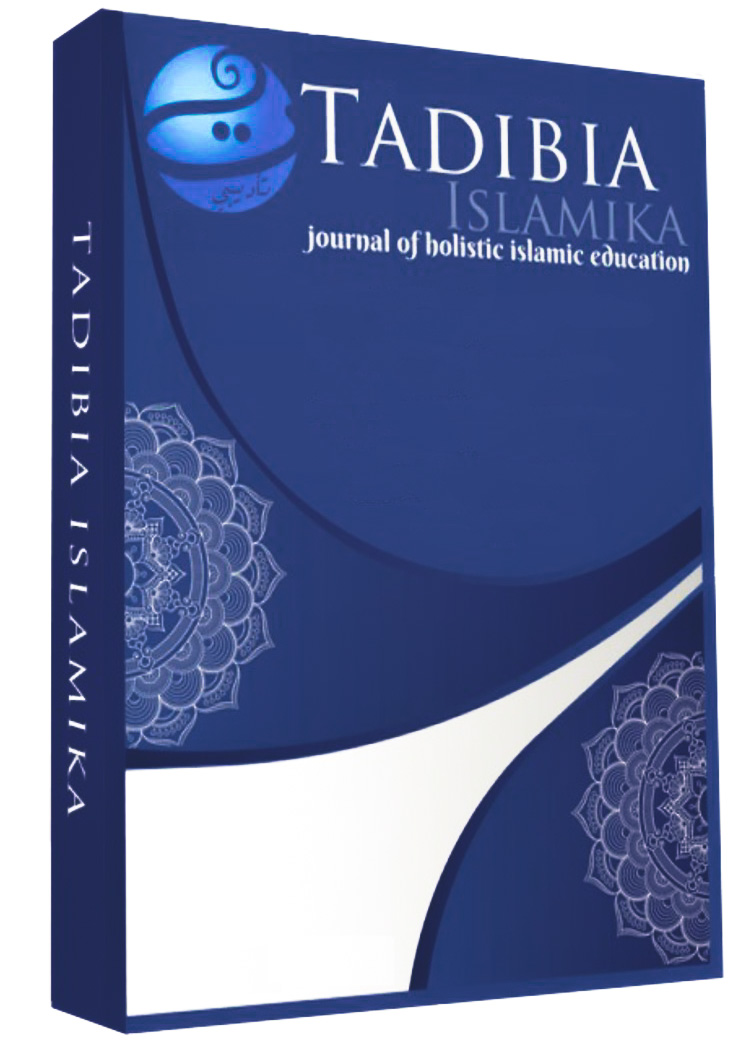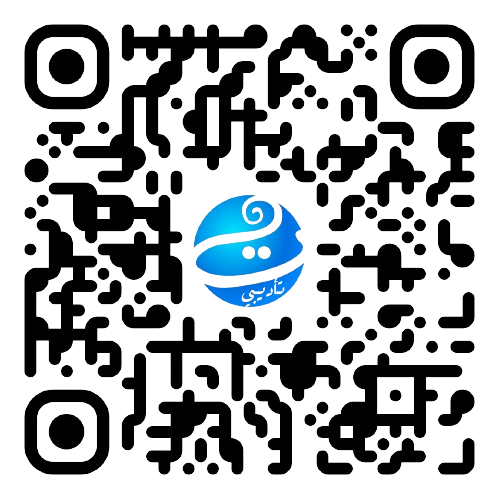Challenges in evaluating Islamic education learning in schools: Implications for educational objectives
DOI:
https://doi.org/10.28918/tadibia.v4i1.2277Keywords:
Educational outcomes, evaluation challenges, Islamic religious education (PAI), moral developmentAbstract
This research was driven by numerous issues identified in the implementation of Islamic Religious Education (Pendidikan Agama Islam, hereinafter PAI) in schools, which diverge from the intended goals of Islamic education, particularly in fostering moral development and student skills. The primary objective of this study was to analyze the challenges in evaluating PAI learning in schools and to understand its implications for the overarching goals of Islamic education. Employing a qualitative approach, this study utilizes a descriptive-analytical method through library research. The data validity was established through the examination of various relevant sources, including journals, scholarly articles, books, and documents pertinent to the evaluation of PAI learning. The findings reveal significant problems, particularly in the neglect of affective and psychomotor domains, with an overemphasis on cognitive assessment. The assessment methods often fail to reflect the intrinsic values or spirituality, are inconsistent, and tend to be subjective. These issues manifest in the form of assessments that do not adequately capture the moral and ethical dimensions that are central to Islamic education. Consequently, these shortcomings hinder the achievement of the primary goals of Islamic education, which include the cultivation of exemplary moral character and the recognition of diverse student skills and abilities. Furthermore, the inconsistency and subjectivity in assessment practices undermine the reliability and effectiveness of the educational outcomes. Addressing these issues is crucial for aligning the evaluation methods with the holistic objectives of Islamic education, thereby ensuring a more comprehensive development of students' intellectual, moral, and practical competencies.
References
Amma, T. (2018). Problems of the Islamic Religious Education Learning Process. Al-Itibar Journal, 5(2).
Anas, H., & Khotibul, U. (2020). PAI Teaching and Its Problems in Public Schools at the Middle School Level. Rechtenstudent Journal, 1(1).
Chusnuts, M., & Uswatun, K. (2019). Evaluation of Islamic Religious Education Learning and Its Implications for Student Learning Motivation at MTs NU Banat Kudus. Al-Mudarris Journal, 2(2).
Dhomiri, A., Junedi, M., & Mukh, N. (2023). Affective Evaluation of PAI Learning in Schools. Equatorial Journal, 3(1).
Jumiarti, A., & SD, Abdul. (2019). Problems of PAI Learning at SMK N 1 Siabu, Mandaling Natal Regency. Darul Ilmi Journal, 7(1).
Marzuki, I., & Lukmnul, H. (2019). Evaluation of Islamic Education. Tadarus Tarbawy Journal, 1(1).
Masykur, R. (2018). Theory and Study of Curriculum Development. Lampung: AURA Publisher.
Muamar, Ruslan, Syarifudin, & Ahmad. (2022). Evaluation of the PAI Learning Process in KUMER at SMA N 4 Bima City. Tadarus Journal, 11(1).
Muhammad, K., & A., Khairan. (2022). Analysis of the Concept and Goals of Islamic Education from the perspective of the Koran, Assunah and the Ulama. Tahdzib Al-Akhlaq Journal, 5(1).
Nafisatus, Z., & Mohammad, S. (2022). Evaluation of PAI Learning for ABK. PESAI Journal, 8(1).
Putri, D. F., & Nurul, L. I. (2023). Evaluation of Islamic Religious Education and Character Learning in Public Middle Schools. Munaddhomah Journal, 4(2).
Rahayu, F. (2019). The Substance of Educational Evaluation from an Islamic Education Perspective. Al-Ishlah Journal, 17(2).
Riadi, A. (2017). Problems with Learning Evaluation Systems. Ittihad Kopertais Journal Region IX Kalimantan, 15(27).
Rifai, R. L., Putri, E., Abdurrahman, M., Rediani, F. Z., & H., H. (2020). Evaluation Model for Online-Based PAI Learning at MTs. Usman Syarif Medan During the Covid-19 Pandemic. El-Buhuth Journal, 3(1).
Rohman, M., & Hairudin, H. (2018). Concept of Islamic Education Goals Perspective of Socio-Cultural Values. Al-Tadzkiyyah Journal, 9(1).
Rusmin, M. (2017). Concept and Goals of Islamic Education. Journal, 6(1).
Salamun, A., & Sofyan, S. (2023). Issues and Problems in Evaluation Analysis and Policy Development of Islamic Religious Education. Journal of Islamic Education, 12(1).
Slamet, M. U. (2019). Research Methodology: Theory and Practice of Educational and Social Research. Yogyakarta: Litera.
Solichin, M., & Fujirahayu, F. (2018). Problems of Evaluation of Islamic Religious Education Learning in the Education Unit Level Curriculum in Middle Schools. Journal of Islamic Education, 2(1).
Taufiq, I. A., Moh, S., & Heri, P. (2022). Problems of Affective Assessment in Islamic Religious Education Subjects. As-Sunniyah Journal, 2(1).
Yahya, Y. (2019). Evaluation of PAI and Character Learning at YPP Purworejo Vocational School. In Proceedings of the National Seminar: Education Policy and Development in the Era of Industrial Revolution 4.0.
Downloads
Published
How to Cite
Issue
Section
License
Copyright (c) 2024 Arlinda Ayu Diah Arfani Arlinda

This work is licensed under a Creative Commons Attribution-ShareAlike 4.0 International License.



















